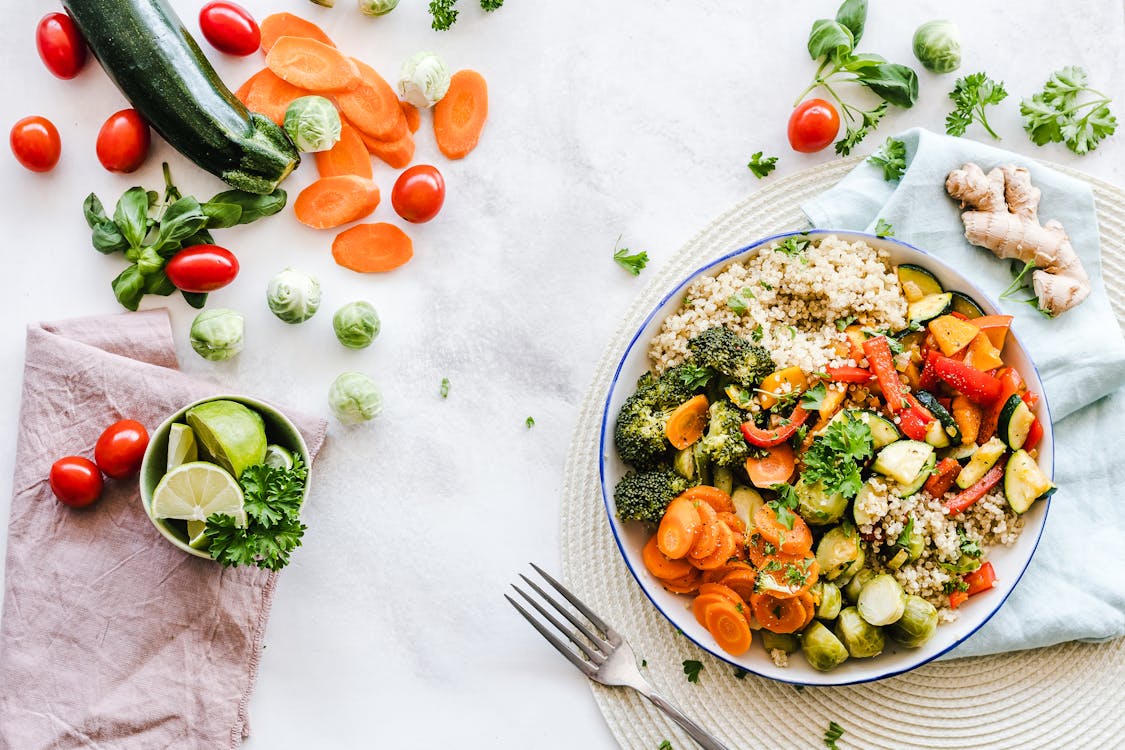Knee pain is a common issue that affects people of all ages. It can result from injuries, arthritis, or other medical conditions. While medical treatments and physical therapy are crucial, incorporating specific foods into your diet can also play a significant role in alleviating knee pain. Here is a comprehensive guide on the top 10 foods that can help relieve knee pain.
These 10 foods to relieve knee pain are recommended by the Best Orthopedic Doctor in Jaipur – Dr. SS Soni.
1. Fatty Fish
Why it helps: Fatty fish like salmon, mackerel, sardines, and trout are rich in omega-3 fatty acids, which have anti-inflammatory properties. Omega-3s can reduce joint pain and stiffness by decreasing inflammation in the body.
How to include it: Aim to eat fatty fish at least twice a week. You can grill, bake, or steam the fish to retain its nutrients.
2. Turmeric
Why it helps: Turmeric contains curcumin, a compound known for its powerful anti-inflammatory and antioxidant properties. Curcumin can reduce pain and swelling in the knees.
How to include it: Add turmeric to your meals by using it in soups, stews, curries, or smoothies. For better absorption, combine turmeric with black pepper.
3. Leafy Greens
Why it helps: Leafy greens like spinach, kale, and Swiss chard are high in antioxidants and vitamins, such as vitamin C, E, and K. These nutrients help reduce inflammation and support joint health.
How to include it: Incorporate leafy greens into salads, smoothies, or as a side dish. You can also sauté them with a bit of olive oil and garlic for added flavor.
4. Berries
Why it helps: Berries, including strawberries, blueberries, and raspberries, are packed with antioxidants called anthocyanins. These compounds can help reduce inflammation and provide pain relief.
How to include it: Enjoy berries as a snack, in your breakfast cereal, or as part of a dessert. You can also add them to smoothies for a nutrient boost.
5. Nuts and Seeds
Why it helps: Nuts and seeds like almonds, walnuts, flaxseeds, and chia seeds are rich in omega-3 fatty acids, protein, and fiber. These nutrients help reduce inflammation and promote joint health.
How to include it: Snack on a handful of nuts, add seeds to your salads, or incorporate them into your baking recipes. You can also use nut butters as a spread.
6. Olive Oil
Why it helps: Olive oil contains oleocanthal, a compound with anti-inflammatory properties similar to those of ibuprofen. Regular consumption of olive oil can help reduce joint pain and stiffness.
How to include it: Use olive oil as your primary cooking oil. Drizzle it over salads, vegetables, or whole-grain dishes for added flavor and health benefits.
7. Garlic
Why it helps: Garlic has anti-inflammatory and immune-boosting properties due to its sulfur compounds. These compounds can help reduce the symptoms of arthritis and other inflammatory conditions.
How to include it: Add garlic to your cooking by mincing it into sauces, soups, or marinades. Roasted garlic can also be used as a spread on bread or vegetables.
8. Ginger
Why it helps: Ginger contains compounds called gingerols, which have anti-inflammatory and antioxidant effects. These compounds can help reduce knee pain and improve joint function.
How to include it: Use fresh or powdered ginger in your cooking. Add it to teas, soups, stir-fries, or baked goods for a spicy kick and health benefits.
9. Whole Grains
Why it helps: Whole grains like oats, quinoa, brown rice, and whole wheat are high in fiber and nutrients. They help reduce inflammation and provide sustained energy for joint health.
How to include it: Replace refined grains with whole grains in your diet. Enjoy whole-grain bread, pasta, and cereals, or add grains like quinoa to salads and soups.
10. Green Tea
Why it helps: Green tea is rich in polyphenols, particularly epigallocatechin gallate (EGCG), which has potent anti-inflammatory and antioxidant properties. Drinking green tea can help reduce joint pain and protect cartilage.
How to include it: Drink green tea daily. You can enjoy it hot or iced, or use it as a base for smoothies.
Tips for Maximizing Benefits
- Balanced Diet: Incorporate these foods into a balanced diet rich in fruits, vegetables, lean proteins, and healthy fats.
- Stay Hydrated: Drink plenty of water to keep your joints lubricated and support overall health.
- Exercise: Combine your healthy diet with regular, low-impact exercises such as swimming, cycling, or yoga to strengthen muscles around the knee and reduce pain.
- Consult a Professional: Always consult with a healthcare provider or a registered dietitian before making significant changes to your diet, especially if you have existing health conditions.
Conclusion
Incorporating these top 10 foods into your diet can help reduce knee pain and improve joint health. While these foods can offer significant benefits, they should complement other treatments and lifestyle changes. Eating a balanced diet, staying active, and consulting healthcare professionals will provide a holistic approach to managing knee pain effectively.






Comments